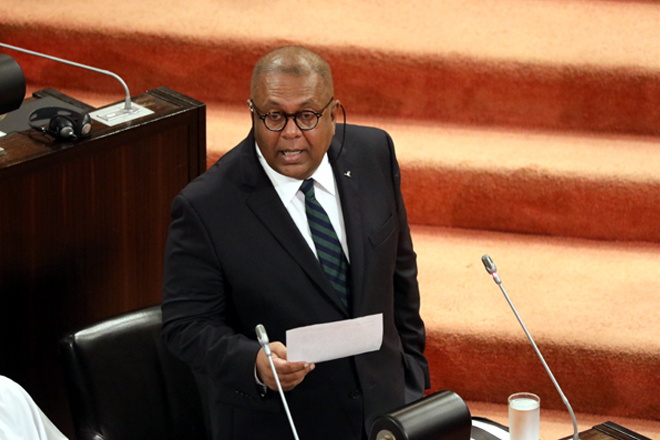Nov 17, 2017 (LBO) – Sri Lanka’s Finance Minister said they are aiming at fast tracking liberalisation with legislative reforms as they have identified bottlenecks to investment both domestic and foreign.
Making a statement in Parliament at the second reading of the budget, Finance Minister Mangala Samaraweera said prime amongst these constraints include limitations in access to affordable and productive land, labour, and capital.
“There are vast tracts of land in the country that are tied up in completely unproductive use or are in fact abandoned,” Samaraweera said.
“The land legislative reforms we propose are with a view to freeing up this unproductive or unused land for productive use for investment, for enterprise.”
Samaraweera said today’s labour laws dictate and restrict working hours of women and men and do not reflect modern working conditions including technological innovations that enable work from home or remote work.
“We intend to modernise these laws to enable our men and women to have more choice in their working conditions and how they work,” he said.
“This will make it easier for companies to hire people and create jobs.”
He said our capital markets have miserably failed our SMEs and entrepreneurs. According to him capital market liberalisation does not mean unfettered opening up of markets.
“In the past, successive government’s role in financial markets has been in owning and operating numerous banks and financial institutions,”
Samaraweera said most of these have failed to provide access to affordable capital for SMEs and entrepreneurs.
“The business of government is not in doing business. This is especially so when the government’s legacy in running SOEs is an accumulated debt of Rs1.4Tn."
Finance Minister highlighted that through this budget they want to create the platform to empower Sri Lankan business to enter global value chains and compete in global markets.
“Towards this end, we have proposed significant investments in encouraging the export sector,”
“More than 20% of our exports are agricultural exports and the Budget provides significant support to this sector.”
Samaraweera said the country have become one of the most protectionist economies in the region with an array of tariffs and para-tariffs.
These tariffs have resulted in creating an anti-export bias and diverting economic resources to the non-tradable sector.
“It is in this context that we have embarked on a systematic trade liberalisation agenda in this budget. We announced the immediate removal of 1,200 para tariffs as a starting point,”
“This is a major reform. However, rest assured that these reforms are not being initiated in a vacuum.”
The government has identified a core negative list of products, including sensitive agricultural and rural industry products, which will not be subject to the same liberalisation programme.
The government is to bring in legislation to prevent unfair trading practices, and anti-dumping, countervailing, and safeguards laws soon.
He said together with strengthened consumer protection laws, Sri Lanka will have the legislative framework to address any negative fallout from trade liberalisation efforts.
buy doxycycline online buy doxycycline online no prescription
Finance Minister further stated that Sri Lanka’s established capitalist class are afraid of competition, in spite of being in business for decades, and in some cases over a century.
“They lack the same self-belief and confidence of Sri Lanka’s emerging entrepreneurs who quite rightly believe they can take on the world and win, particularly in their own backyard,”
“Whilst some among us dwell in a mistaken ideology, quoting Deng Hsiao Peng and Ho Chi Ming, these very countries are embracing reform and modernisation.”
The second reading of the 2018 budget was passed in parliament yesterday. 151 votes were cast in favour of the budget, while 58 votes were cast against it.
The third reading of the budget or the committee stage debates will commence today and continue until December 9.
Finance Minister says budget aims at fast tracking liberalization

